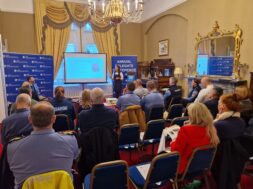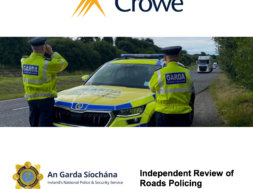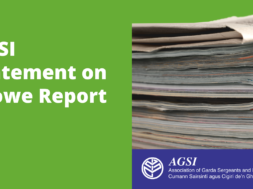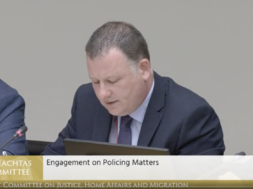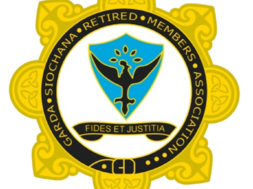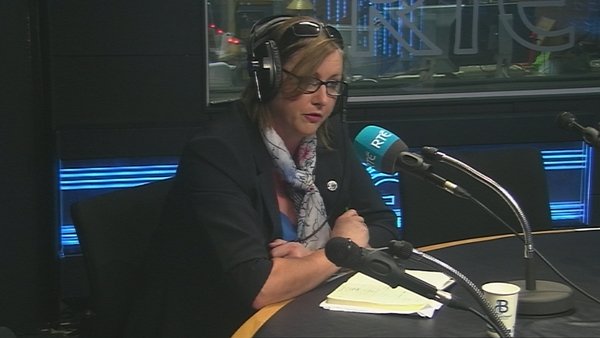
Enhanced Garda Powers to Police COVID-19 Need to be Practical and Applicable
Association of Garda Sergeants and Inspectors calls on Government to consider the practical application and enforcement of additional proposed legislation
The Association of Garda Sergeants and Inspectors (AGSI) has called on the Government to consider the practical application and enforcement of the proposed legislation that they are drafting up for members of An Garda Síochána under emergency public health legislation.
Speaking on the This Week programme on RTÉ Radio 1, General Secretary Antoinette Cunningham stated the proposed new laws being considered by Government are important to protect public health.
LISTEN TO INTERVIEW WITH JUSTIN MC CARTHY (listen at 4.43)
LISTEN TO INTERVIEW WITH PAT KENNY (listen at 7.25)
LISTEN TO INTERVIEW ON HIGHLAND RADIO
“Everybody carries a responsibility for their own behaviour and actions during this pandemic. As an Association we are extremely worried about the rise in numbers. We don’t want to undermine public confidence or the effort the Government and Gardaí are making. However, we are on the frontline of enforcement and some aspects present difficulties in terms of practicality.”
As first-line supervisors AGSI say their experience in policing COVID-19 has been met with compliance and goodwill from the public. “Policing this crisis has led us back into communities which is most welcome.
“Our recent survey of members (published July 8) after 12 weeks of policing the COVID-19 pandemic showed 92% reported high levels of positive interactions with the public; 97% reported a positive response from the public to the role of members of An Garda Síochána in policing COVID-19, but 94% said that with the easing of the COVID-19 restrictions it became more difficult to enforce the emergency regulations
“We want to thank the public for their commitment to adhering to public health guidelines and it’s a minority that are not taking personal responsibility and unfortunately we find ourselves now seeing further laws being proposed by Government.”
The Association spoke to its members across the country over the weekend since the Government announcement and a number of potential challenges with the proposed laws were raised.
“Enforcing poorly drafted legislation causes issues for our members and creates an unrealistic expectation amongst them that simply don’t exist. Previously there were strict rules and regulations around pubs carrying a special restaurant licence or certificate. Now it appears pubs or restaurants are simply required to provide a €9 substantial meal.” says Ms Cunningham.
“We understand completely the economic turmoil for businesses, but our role is to enforce the law. It’s important to note our members have not asked for these enhanced powers. But we want to make an appeal to Government as they consider the legislation not to give us poorly drafted legislation fraught with enforcement issues.
“Winter is coming and it will drive people from outdoor dining and seating arrangements to indoors. Is that going to create a problem with social distancing? Are we policing the 2 meter rule? Do we have to ask citizens to show us receipts for €9 meals? Are we policing the use of hand sanitisation? Where do the other regulatory authorities come into play in terms of enforcement, what role is there for health or health and safety authorities?
“AGSI would like to ask the Government if they believe the regulations and legislation that they introduced, for example, relating to a €9 substantial meal in a pub is actually working from an enforcement points of view, and if not, do they think it’s time that they reviewed their own legislation?”
AGSI state it is widely known that an objection to the renewal of a pub or restaurant licence is done once a year in the September courts. Therefore is a breach occurs in October or November it can’t be opposed to until the following September.
On the matter of proposed enhanced laws to police health regulations in relation to house parties (no more than six people from three households), Ms. Cunningham stated,“entering a person’s private home can only be done under the strictest of conditions and usually under warrant and in accordance with law. Any new laws being proposed around the entry into the private dwelling of a citizen would be, in our view, fraught with difficulty and we are glad the Government seems to be taking the time to consider all the complexities it would bring.”


